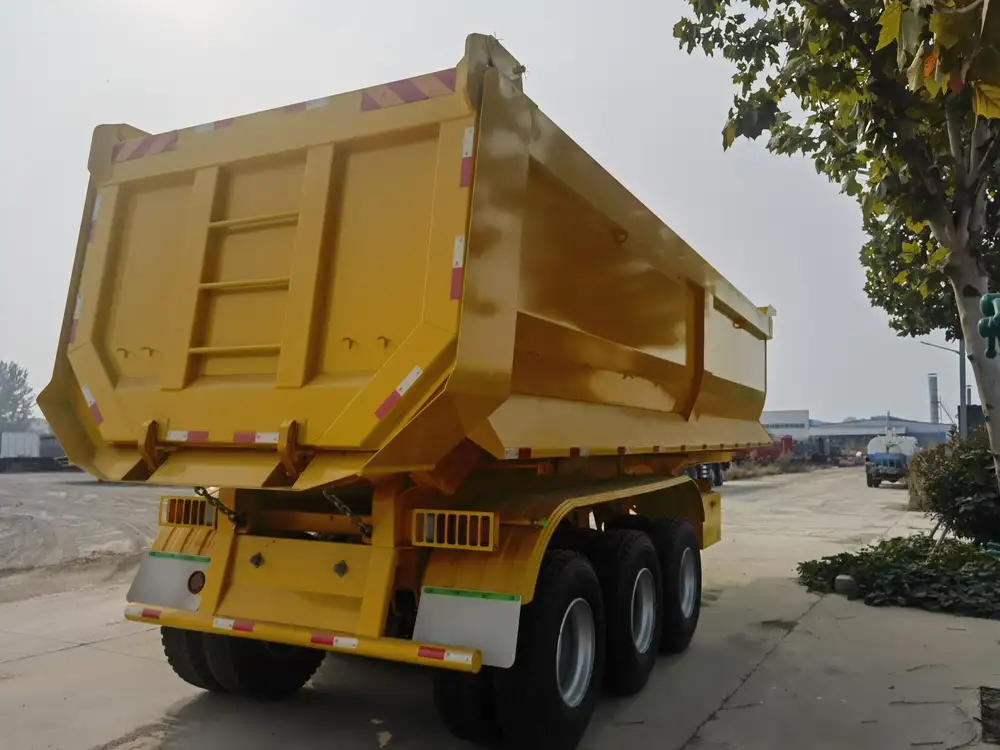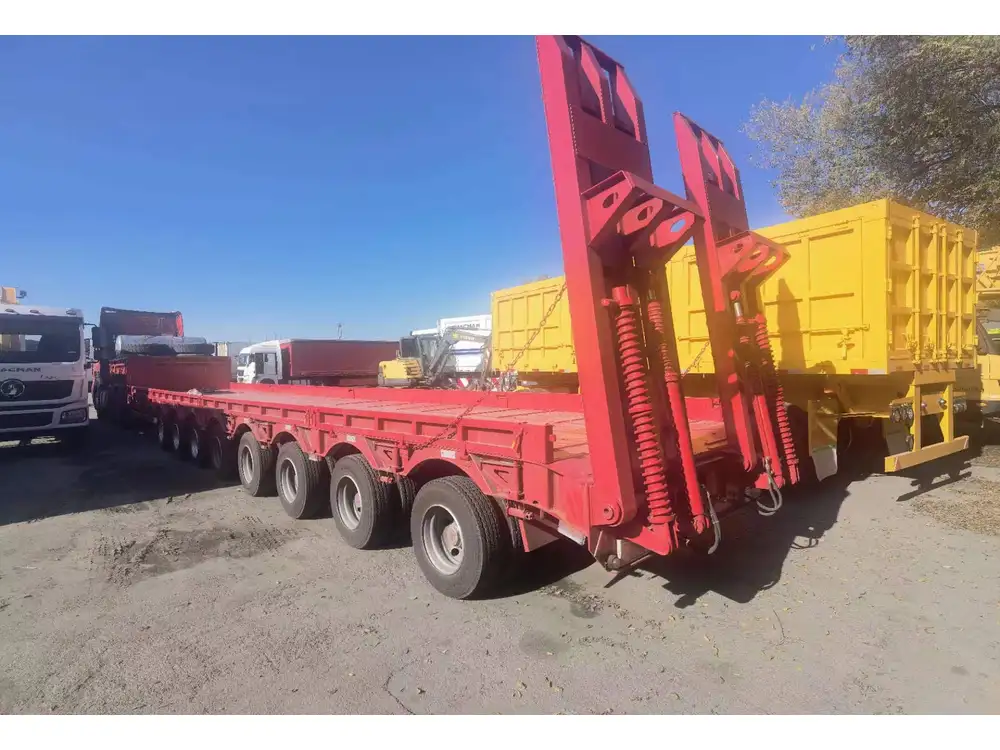When it comes to transporting goods across state lines or utilizing large vehicles for commercial uses, understanding regulatory requirements becomes paramount. One significant aspect of this is the DOT number—an identifier issued by the Department of Transportation. Herein, we delve into the intricacies of DOT numbers required for dump trailers, examining crucial facets, compliance issues, and the potential implications for manufacturers and operators alike.
What is a DOT Number?
A DOT number, or Department of Transportation number, is a unique identifier assigned to commercial motor vehicles (CMVs) used on the highways of the United States. This number serves several vital functions, primarily for ensuring compliance with federal regulations, safety record monitoring, and tracking data regarding transportation safety.
Key Features of DOT Numbers
- Identification Purpose: Each unique number identifies a specific carrier or operator within the trucking industry.
- Regulation Compliance: Various state and federal regulations necessitate that certain types of vehicles display a DOT number.
- Safety Monitoring: The number is also instrumental in tracking the safety performance of carriers through reported incidents and inspections.

Do You Need a DOT Number for a Dump Trailer?
Determining Factors
The necessity of obtaining a DOT number for a dump trailer primarily hinges on a few critical factors. Understanding these elements can save you from legal complications and ensure compliance:
Operating Weight:
- Intrastate vs. Interstate: The weight and state of operation significantly impact whether you require a DOT number. If your dump trailer exceeds 10,000 pounds and is used in interstate commerce, you will need a DOT number.
- Federal Guidelines: Both federal and state regulations are pertinent; thus, transporting goods across state lines mandates registration.
Type of Cargo:
- Commercial Use: Using a dump trailer for commercial purposes—like hauling materials for a contractor—raises the threshold for requiring a DOT number.
Commercial Driver’s License (CDL):
- If your dump trailer requires a CDL to operate legally, you will predominantly require a DOT number, as this underscores the commercial aspect of your operation.
Business Structure:
- Is your dump trailer part of a larger fleet operation? If yes, the chances of needing a DOT number increase substantially.
State-Specific Regulations:
- Each state can have different regulations concerning the need for a DOT number based on weight and purpose. Consult local regulations to ascertain compliance.
Comparison of DOT Number Requirements
| Parameter | Requirement for DOT Number | No Requirement for DOT Number |
|---|---|---|
| Weight Over 10,000 lbs | Yes (for interstate commerce) | No (for intrastate and non-commercial use) |
| Commercial Purpose | Yes | No (for private, personal use) |
| Requires CDL | Yes | No |
| Operating Across State Lines | Yes | No |

Compliance and Registration Process
Steps to Obtain a DOT Number
If the factors listed above indicate that you do require a DOT number, follow these steps:
Understand Eligibility:
- Ensure your operation meets DOT’s eligibility requirements.
Prepare Necessary Documentation:
- Gather documents such as your business formation documents, proof of insurance, and a record of your vehicles, including their weight and usage.
Fill Out the Application:
- Visit the Federal Motor Carrier Safety Administration (FMCSA) website to access the application form (MCS-150).
Pay Applicable Fees:
- There are minimal fees usually associated with the application that can vary by state.
Receive Notification:
- Once submitted, you will receive your DOT number within a few weeks if approved.
Maintaining Your DOT Number

Responsibilities Post Acquisition
Securing a DOT number is not a one-time task but requires ongoing compliance with regulations. Key responsibilities include:
Regular Vehicle Inspections:
- Vehicles must undergo regular inspections to ensure roadworthiness.
Update Business Information:
- Notify FMCSA regarding any changes in business details, vehicle changes, or address changes.
Maintain Insurance:
- Insurance coverage must meet regulatory standards, and proof may need to be submitted periodically.
Adhere to Hours of Service Rules:
- Compliance with hours-of-service regulations to prevent driver fatigue is crucial.
Investigate Safety Practices:
- Conduct safety training and establish protocols to safeguard the operation and comply with regulations.
Benefits of Having a DOT Number
Advantages for Operators
While acquiring a DOT number may seem like a bureaucratic hurdle, it opens doors to several advantages:
- Enhanced Legitimacy: Displays professionalism and reliability to clients and partners.
- Increased Business Opportunities: Many contracts mandate proof of a DOT number; thus, possessing one can enhance business potential.
- Access to Resources: With registration, operators gain access to various resources and training opportunities offered by the FMCSA.
- Safety and Compliance Monitoring: Regular audits and safety checks through the DOT system can significantly improve operational safety.

Common Misconceptions About DOT Numbers for Dump Trailers
“I only operate locally; I don’t need a DOT number.”
- If your dump trailer weighs over the specified limits or is used commercially, a DOT number may still be required, even for local operations.
“Once I get a DOT number, I’m done with regulations.”
- Compliance is an ongoing responsibility; failure to adhere can result in penalties.
“It’s only necessary for large trucking companies.”
- Small operations are just as likely to need a DOT number, particularly if they’re engaged in commercial hauling.
Conclusion
The inquiries surrounding whether you need a DOT number for a dump trailer echo a broader narrative about compliance, responsibility, and readiness in the transportation sector. With a thorough understanding of relevant requirements and adherence to regulations, operators can navigate the complexities of the trucking industry while fostering a sustainable and successful business.
In light of the considerations discussed, if you’re operating or planning to operate a dump trailer that meets the thresholds outlined, it is imperative to ensure that you secure your DOT number and maintain compliance with ongoing regulatory requirements—reaping the benefits of a legitimate and efficient operation in the process.
By understanding these essential factors, both manufacturers and operators can make informed decisions that propel their business forward, safeguarding against potential legal challenges while fostering a reputation built on safety and reliability.



